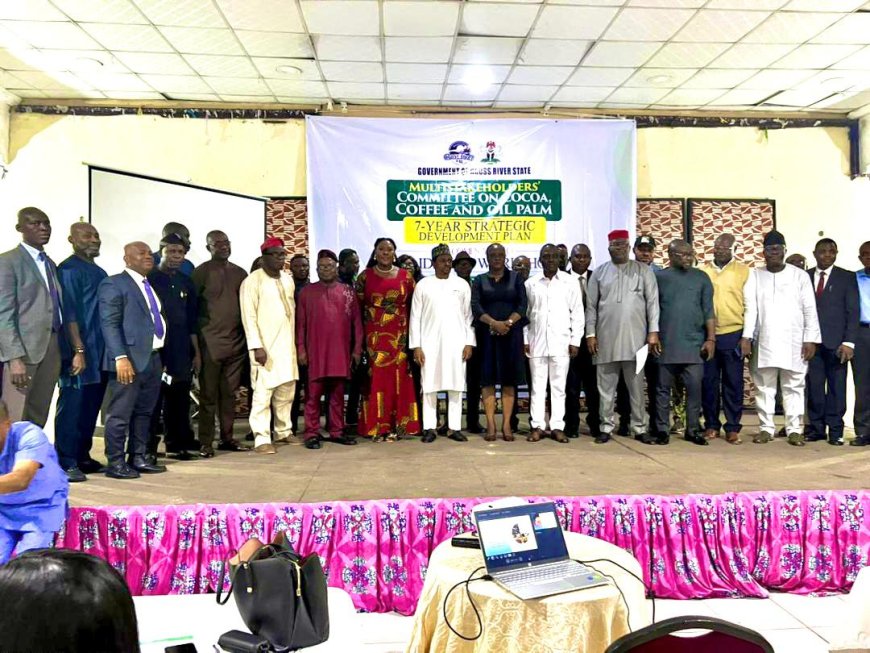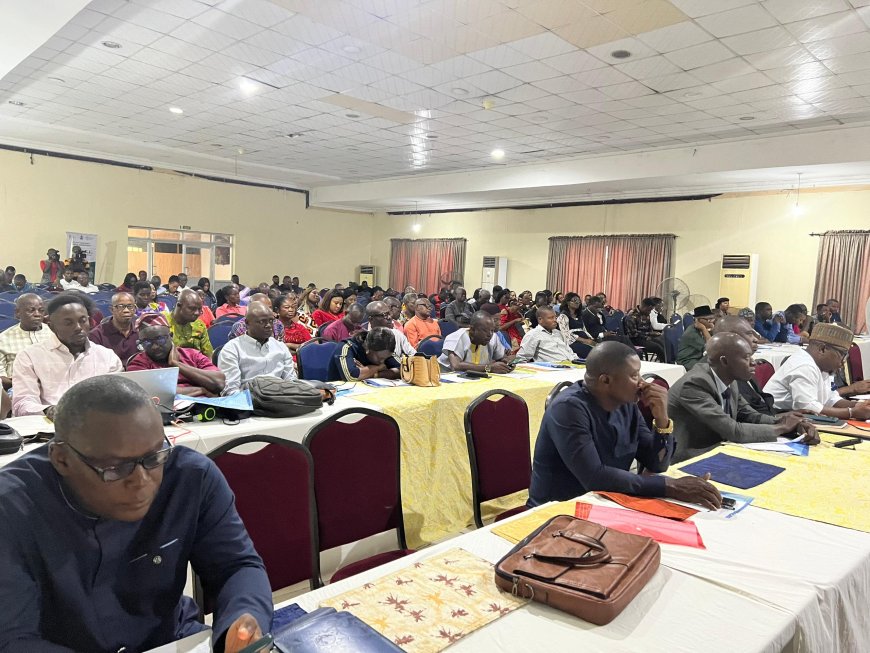Cross River Stakeholders Validate 7-Year Roadmap for Cash Crop Development

By Ebi COLLINS
Industry stakeholders in the cocoa, coffee, and oil palm sectors gathered in Calabar, Cross River State, to review and validate a seven-year strategic plan aimed at strengthening agricultural value chains, boosting productivity, and enhancing revenue generation for both smallholder farmers and the state government.
The initiative, launched in March 2024 by Governor Bassey Otu, tasked a committee with designing a comprehensive roadmap to advance cocoa, coffee, and palm oil production. The plan seeks to improve market access, align production with global standards, and position Cross River as a leading agricultural hub.
Commissioner for Agriculture and Irrigation Development, Johnson Ebokpo, highlighted the critical role of these cash crops in driving economic growth, alleviating poverty, and enhancing food security. He emphasized the importance of adopting innovative and sustainable practices to address sectoral challenges.
"This is more than a plan; it is a strategic vision to unlock the full potential of our agricultural resources. By strengthening the value chain, we can boost productivity, ensure sustainability, and enhance global competitiveness," Ebokpo stated.
He called on stakeholders—including policymakers, industry experts, farmers, and private sector representatives—to actively contribute to refining the plan to ensure it is practical, impactful, and aligned with industry realities.
Strengthening the Agricultural Sector
Permanent Secretary of the Ministry of Agriculture and Irrigation Development, Ntufam Ekpe Bassey, who also serves as the committee’s secretary, noted that Cross River’s agricultural heritage spans over six decades. He stressed the need for a structured and actionable roadmap to guide the sector’s development over the next seven years.
"Our agricultural estates have existed for more than 60 years, yet challenges persist. This strategic plan offers a clear framework to revitalize the industry, attract investment, and create long-term opportunities," he said.
Bassey urged participants to engage fully in the validation process, ensuring the final document reflects real industry challenges and offers feasible solutions.

Prof. Susan Ohen, Chairperson of the Multistakeholder Committee, underscored the significance of collaboration in achieving the plan’s objectives. She noted that the strategy would not only increase foreign exchange earnings and create jobs but also promote gender inclusion and align with international market regulations such as EURD.
"This process allows us to assess our strengths, identify gaps, and formulate strategies that will shape the future of these sectors. The success of this initiative will directly impact farmers, processors, marketers, and financial institutions," she explained.
She called on stakeholders to carefully evaluate the draft plan and contribute recommendations that will ensure a sustainable cash crop economy by 2031.
Speaking with journalists, Dr. Michael Enahoro, Commercial Lead at PULA, an agricultural insurance and technology firm, emphasized the importance of empowering Nigerian farmers.
"Agriculture should not be seen as a last resort for the poor but as a profitable enterprise. This strategic plan must ensure that mapped farms achieve sustainable growth and that profits from Cross River’s agricultural sector benefit the farmers and communities directly," he said.
Also, Godwin Okwu, National Secretary of the Cocoa Association of Nigeria, pointed out that Cross River has vast arable land suitable for cultivating cocoa, palm oil, and coffee. He expressed confidence that proper implementation of the plan would help curb rural-to-urban migration by providing stable income opportunities for young people.
The meeting concluded with strong endorsements from government officials, industry experts, and key stakeholders, all commending the initiative as a transformative step toward revitalizing Cross River’s agricultural sector.













































